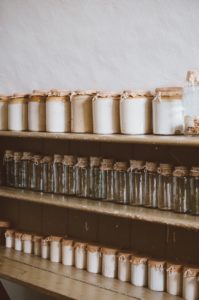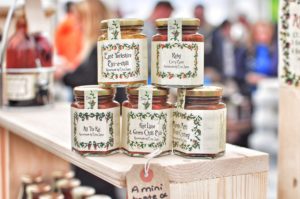by Jenny Rose | Feb 15, 2018 | Contribution, Emotional Intelligence
I’ve been trying to frame a post around generosity for several months. Interestingly and unexpectedly, the idea of generosity has remained a Gordian knot in spite of word webs, notes and lengthy simmering in the back of my mind. Since I began chewing on the idea of generosity, I’ve discovered Unsplash, a site offering free use of photographs for things like this blog, and now I finally feel I’m getting a grip on the subject.
Unsplash features more than 300,000 photos from more than 50,000 contributors. It’s free to use and free to join. Users may upload photographs for whatever they want as frequently as they want.
If generosity is unconditional readiness or liberality in giving, Unsplash is surely a fine illustration of the concept. The Internet is filled with people practicing their art. Some are trying to make a living. Many, like me, provide free content. Others start out contributing freely and then uplevel in order to earn a little bit of money with advertising, an Amazon affiliate program, a subscription fee, etc. In my view, some of the content out there is worth paying for, and other content is not.
Unsplash is worth paying for. Many of the photographers who contribute are professionals with content to sell, yet they continue to share some of their work freely with others.
Up to this point, I haven’t made a dime on this blog. It wasn’t about the money, but exercising my voice, my writing skills and my courage. I had no idea where it would go or what would happen with it. I had no idea if anyone would read what I wanted to write or how much I would grow to value the weekly practice of posting and maintaining a blog. I do want, however, to publish and sell my books in the future.
I think part of my struggle to get my head around generosity has been my own damaged sense of value. Those of us who feel we’re worthless assume we’ve nothing to give. I can’t tell you how many times I’ve declined attending a pot luck, a fundraiser, a party or even a funeral. I tell myself I have nothing to contribute, I was invited out of obligation or kindness, and nobody will even notice my absence.

Photo by photo-nic.co.uk nic on Unsplash
I am not Cinderella, and I do not possess a fairy godmother who will make me socially acceptable or worthy.
I wonder, looking back, if others have experienced me as being ungenerous or mean because of my lack of social contribution, when what was really at work was introversion, social anxiety and an abysmal sense of self-worth. I have no way of knowing.
On the other hand, I’ve volunteered my whole life. I’ve spent years working with children as a librarian, tutor, child development clinician, teacher’s aide, swim teacher and parent. I’ve participated in fire and rescue work as a volunteer EMT, as well as with animal rescue organizations. I’ve volunteered in libraries and as an oral storyteller, and I’ve volunteered as a dancer. I’ve worked in hospitals, nursing homes, public schools and libraries.
See? Nothing to contribute.
I earned a paycheck for some of that work, but one doesn’t get rich doing the kind of jobs I love to do, and the paycheck was never my motivation. I just loved the work. I felt as though I was making a difference in every one of those roles.

Photo by Annie Spratt on Unsplash
I’ve always limited the idea of generosity to financial resource. Part of my shame about my poverty is that I’m unable to be financially generous, which I’ve believed automatically makes me stingy and uncharitable. If my generosity is measured by what I spend, it’s so small as to be negligible. I’m a rotten capitalist consumer.
In thinking deeply about generosity, I can see how my beliefs have distorted my view. I wrote some time ago about the failure of money, and that peeled away some of my limiting beliefs, but only the first layer or two. If I make generosity about money, I can never be generous, and I block the financial generosity of others toward me because I can’t reciprocate in kind. My desire to give is greater than my desire to receive. I desperately want to make a contribution. I feel disempowered when I can’t reciprocate someone’s generosity in a way that feels equal, and then I disconnect.
Unhooking generosity from money changes the way I look at it. Developing some trust in my own value also changes the way I think about generosity. Now I wonder if money is perhaps the least reliable indicator of generosity, not the most. Money is very visible and obvious in the world, but that doesn’t make it the most useful contribution. There have been times in my life when I’ve been in desperate need of money, but many, many more times when I’ve been in significantly more desperate need of someone to hold me, someone to believe in me, encourage me and simply love me. Money is easier to come by, believe me, than love and acceptance. Writing a check, donating a few dollars to the organization of our choice or buying a gift is easier, for many of us, than effectively communicating our love and appreciation for those around us in words or actions.
Some people give only to receive. On the face of it, it looks like generosity, but it’s not. My understanding of true generosity is it has no hidden agenda. Conditional generosity is like conditional love; control and manipulation pretending to be something else. Behavior seeking power over others, or freighted with unacknowledged expectations, is the reverse of generosity.
Another way in which people use generosity to mask control is to force a “gift” onto another. In this case, someone informs us about what we need and we understand we’d better damn well accept it and be grateful. Refusal is out of the question because of an unequal power dynamic. Acceptance of the “gift” also perpetuates an unequal power dynamic, because we’re expected to demonstrate appropriate gratitude (as defined by the gift giver) for something we didn’t want or need in the first place. We’re not allowed to express or receive what we really need, only submit to what someone else needs to give in order to get something for themselves.
A good litmus test for discerning authentic generosity is whether it occurs in anonymity. People giving to receive will never do it quietly. There’s always a camera, a video, a witness or a headline. There’s always a score card, a quid pro quo. There’s always a distorted power dynamic. Such people give to reward and withhold to punish.
You want to star in my production? Meet me on the casting couch and maybe I’ll put in a word for you.
At the end of all this excavation, I’ve finally begun to make friends with generosity. I am capable of being truly generous, and I have generous people in my life. I can discern the difference now between the real thing and a ploy to maintain or grab power. I may not have money, but I can appreciate, marvel and share. I can say thank you. I can give anonymously. I can exercise a generous compassion towards myself and others for our weaknesses and mistakes. I can recognize my desire for reciprocity and power-with as important pieces of my own integrity and freely disconnect from people and situations that don’t support what I need.
This takes me back to Unsplash. I know in this day and age it’s hard to think past the money, but as a creative person on line with free content I can assure you no amount of money outweighs the gratification of knowing I’ve made a connection, that something I write resonates with someone else. Money is important, and I wish I had more of it. If I can uplevel the blog in small ways to earn a little bit of money, I’ll do it. The real reward, though, is when someone reaches out to me and says, “Yes! Me, too! Your words made a difference in my day.” It just doesn’t get better than that.
Because of that, I’ve developed a habit of contacting a couple of photographers every week whose work appears in this blog. Behind each photograph is someone living a life, struggling with the things we all struggle with, sharing their unique vision and eye with the world just because. Unconditionally. I go to their website, if they have one. I explore their pictures and read about who they are. I contact them and briefly introduce myself. I thank them for their collaboration with me, a collaboration invisible to them unless I reach out. I express my appreciation for their contribution. It doesn’t take very long. It’s not as fast as writing a check or reciting a credit card number, but it’s a lot more fun.
So far, every single one has responded to say thank you. Thank you for acknowledging my unique creativity. Thank you for taking the time to remember the person behind the camera. Thank you for collaborating with me so we enhance one another’s contribution.

Photo by Jeremy Bishop on Unsplash
There is no exchange of money in this generosity, only of humanity. They give freely. I accept the gift and add it to my own, paying it both forward and backward.
Generosity: Unconditional readiness or liberality in giving.
Please take a moment and meet photographers Jeremy Bishop and Annie Spratt.
All content on this site ©2018
Jennifer Rose
except where otherwise noted
by Jenny Rose | Sep 15, 2016 | Power
Since I began this blog I’ve wanted to write about boundaries, not only because I myself am trying to develop better ones, but also because it seems to me boundaries are a large part of what’s broken in our culture.
We’re all aware of headlines from all over the world about human rights, ethnic and racial struggle, politics, sexual identity, religion and war. It seems to me boundaries are a core piece in each headline; an enormously complex piece of human function and dysfunction. How do we define, understand and effectively manage boundaries — both our own and those of others? How do we manage people who consistently violate our boundaries?
Trying to organize my thoughts about this is like trying to herd cats. That being said, I can choose a starting point, so I’m going to start there and see if the subject organizes itself as I write.
I approach most subjects with a definition and curiosity about what others are saying about it. A Google search for “boundary” tells me it’s a “dividing line.”
I’ve read two articles recently about boundaries. One is written from an emotional intelligence perspective and one is about human rights, kind of a sidewise look at boundaries through the idea of respect. Both have contributed to my mental soup on this subject.
My experience is that any piece of human function or dysfunction begins with myself. Self-reflection and self-inquiry are powerful tools for me, even though I occasionally wince at what I find!

Photo by Annie Spratt on Unsplash
So, let’s play a game. Open your refrigerator, or your pantry, or your cupboard. Look at a shelf where you keep food. Everything is in a container. The container around the food is a boundary. If none of that food had boundaries around it — well, that would just be a mess.
As we start thinking about boundaries from ourselves outward, let’s take a jar of strawberry jam. It’s a glass jar with a screw top lid and it’s clearly labeled strawberry jam. Effective boundaries, it seems to me, begin with a correct identification of what’s being contained. We have to know who we are before we can create healthy boundaries, because our boundaries won’t look like someone else’s. They’re not one size fits all. You can’t keep strawberry jam in an eggshell. You don’t want raw eggs in a jar labeled strawberry jam. A can with the label torn off could still be food, but it’s hard to use it effectively.
Mislabeling happens in two directions. There are those externally who tell us who we will, should or must be (or who we will, should or must NOT be), and there are our own internal expectations of who we are and what we need. If something goes wrong right here, at the first step of boundary work, we’ve got problems.
This takes us directly back to several dynamics I’ve posted about — expectations, stories, saying yes and no, and pleasing people among them. My experience in my own western middle-class culture has been painful pressure to be who I’m expected to be, not who I really am. If this can happen to me, a straight, white, average-looking, average-sized, able-bodied, unambiguous female, then I know hundreds of thousands of people out there are being systematically emotionally and spiritually maimed in ways I can’t begin to fathom.
This opposition to knowing and being ourselves is everywhere. Capitalism is based on the idea you’re not okay as you are, but you will be if you buy…whatever it is.

Photo by Viktor Forgacs on Unsplash
I’m strawberry jam. I’m not grape jelly, even though it’s more valuable. I’m not blackberry jam, even though it’s more attractive. I’m not raspberry jam, even though it’s more popular. Go ahead, glue a label on me that says “currant jelly.” I’m still going to be strawberry jam, and my true boundaries are a glass jar with a screw top lid and a label that says strawberry jam.
As cruel as it is, the external pressure we feel to be other than we are is not the most damaging thing. The most damaging piece is what we do internally to ourselves. I can spend my whole life with my fingers in my ears and my eyes squinched shut saying I’m peanut butter, but I’ll always be strawberry jam. Other people will know it. I’ll know it. Nothing will ever work for me because I’m in the world trying to be something I’m not. I won’t find my people. I won’t find my place. I won’t figure out and make my contribution. I won’t have effective boundaries. I won’t be happy.
Not only that, but my inability to manage and maintain effective boundaries affects everyone around me. If my jar is cracked or broken, strawberry jam is going to ooze out onto the shelf. It’ll make a mess. It’ll attract pests and predators. It’ll be wasted and it will impoverish the peanut butter, the toast, the butter and whatever else might have connected with me as strawberry jam.

Photo by Jonathan Pielmayer on Unsplash
In order to have healthy boundaries we have to know what we need. In order to know what we need we have to know who we are. Finding out who we are can be a terrifying prospect, especially if we’re captive to what other people, media, our culture, and most of all ourselves tell us we MUST be in order to get loved and find happiness, meaning and purpose.
I have made up my mind I will build better boundaries. I will figure this out. If anybody out there will walk beside me, I’ll be very pleased. I know I’m not the only one struggling with this. In fact, I don’t know anyone who doesn’t have trouble with some piece of it.
My starting point is right here, with myself. I’m strawberry jam and my boundaries are a glass jar and a screw top lid. My label says strawberry jam. I’ve no interest in forcing, persuading or coercing anyone else to be strawberry jam. I just know what I am. It might be that strawberry jam is outlawed, shunned, shamed, beheaded, tortured, raped, imprisoned, damned to Hell, unsaved, unenlightened, unlovable, unwanted, unworthy or lined up against a stone wall and shot under a hot sun. I’ll still be strawberry jam. I’m not confused and I’m not going to feel ashamed about it.
Peanut butter and strawberry jam sandwich, anyone?
All content on this site ©2016
Jennifer Rose
except where otherwise noted
by Jenny Rose | Aug 25, 2016 | Power
Last month I posted about our power and ability to say both yes and no to others. This morning I’m thinking about another level of yes and no; that is the yes and no we say to life. At this level, the term ‘consent’ is useful. Consent means to “give permission for something to happen,” according to a 2-second search on Google.
Consent is a huge and complex topic and there’s a great deal of discussion about different aspects of it. For the purposes of this post, I’m using consent in the widest sense; the way in which we approach life.
Several interactions this week have made me think about the mysterious difference between people who consent to learn and grow and those who don’t. When I think about my observations, and people I’ve known, it’s clear to me the difference between these two kinds of people has nothing to do with age, sex, money, education, employment, intellect or family. It has nothing to do with the color of our skin or the god(s) we worship, or where on the planet we live, or what kind of horrors we might have endured.
I’m acquainted with a writer who sent me a piece in praise of stubbornness, a quality she admires (as do I) in herself and others because to her it means a determination to survive and do well, regardless of limitations, real and perceived. (Thank you, A!) We might mean the same thing by consent and stubbornness, or close to it. I see the ability to consent to learning and growth, over and over, no matter how many times we’re knocked down and cut off, as a kind of stubbornness — a refusal to give up, to close down, to conform to something that doesn’t work for us.
Without even trying I can identify seven people in my life, past and present, who don’t consent to the experience of life, the flow, the dance, the mystery and uncertainty, the synchronicity and the billions of invitations that arise for exploration, connection, understanding, growing and being.

Photo by Alex Iby on Unsplash
These folks are easy to spot. They resist. They argue with what is. They deny, distract, fall into various addictions. They don’t communicate effectively. They care about winning, being right and power-over. They have rigid stories and expectations. Everything that happens to them is a personal insult or a crisis. They’re victims. A good, deep question is a grave threat. To my eyes, they look miserably unhappy. They repeat the same patterns, over and over, dying a little more with each fruitless repetition. They do not consent. They refuse.

Photo by Cristian Newman on Unsplash
Every single one of the seven people I’m thinking of has had opportunities to learn, to grow, to change, to make different choices. They all had people in their lives who loved them and had information, tools and skills that might have enriched them. They all had people in their lives who valued them and wanted their contribution. They each had at least one person in their life who would have done anything to support them in learning and growing, and that person was me.
Most of those relationships are behind me now, because I have this unforgiveable quality of consent. My life now is based on the why, the what if, the whose rule is that, the help me understand. My life is about teach me, show me, share with me and what do you think? My life is about doing more of what works and letting the rest go. People who refuse and people who consent invariably have friction, because their needs are opposite. There’s just nowhere meaningful to go.
People who consent are not perfect or perfectly happy people. On the contrary, their lives have been filled with mess and miscalculations, abuse, addictions and other painful experiences, but they’ve learned from everything and everyone. People who consent don’t look at their lives with bitterness or frame things as mistakes. They see teachers, opportunities and fascinating things learned and yet to learn. People who consent are endlessly curious. They think about what they don’t know and question what they think they do know. They seek the hidden thing. They’re more likely to ask questions than proselytize or lay down the law. They’re not interested in power games or being right or winning. They seek to understand, to explore, to exercise choice, to manage their own power. They can laugh at themselves. They can and do say no, but they say it to protect their integrity and needs, not to shut out or control life.
People who consent choose happiness. That’s the most important one for me. I’m still reaching for that. I’ve always been a person who consents, but I’ve also chosen to stay limited in many important ways. As I’ve learned to discern between refusal and consent, I see that living life from a state of consent results in joy. Again, it’s got nothing to do with age, beauty, money, status or any of the things that the culture says we’re defined by. Joy, at the end of the day, is a simple thing, arising out of being at peace with this wild ride we call life. Joy is consenting to surrender, consenting to feel and experience, consenting to feeling fear and doing it anyway, consenting to give up trying to control the things we can’t control. Joy is composed of tears, blood, loss and disappointment, pain and growth. We already have it. It’s here, sitting on your shoulder as you read this and mine as I write.
All we have to do is consent.

Photo by Evan Kirby on Unsplash
All content on this site ©2016
Jennifer Rose
except where otherwise noted








